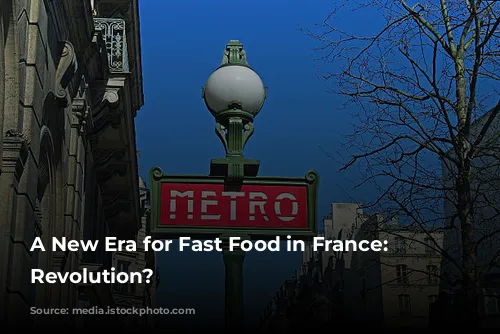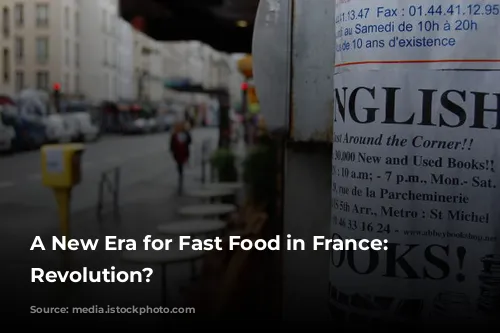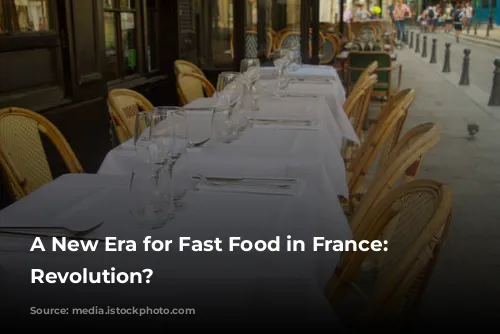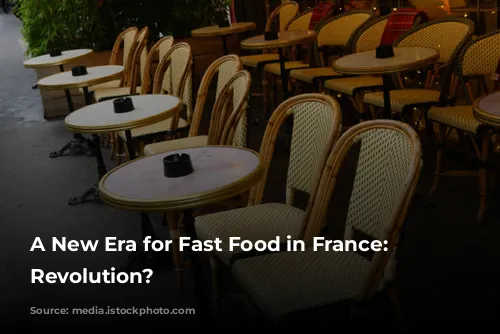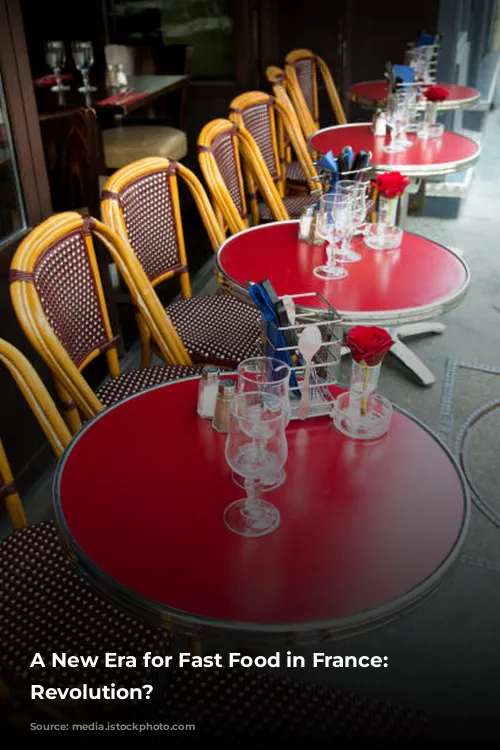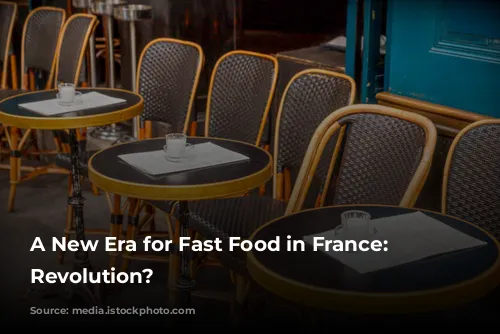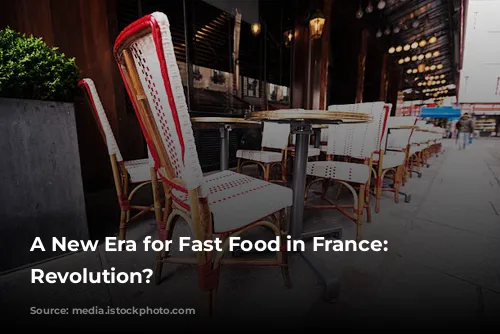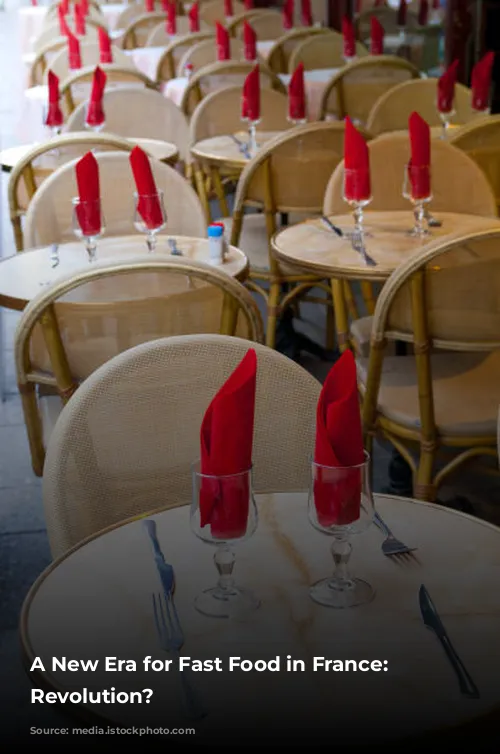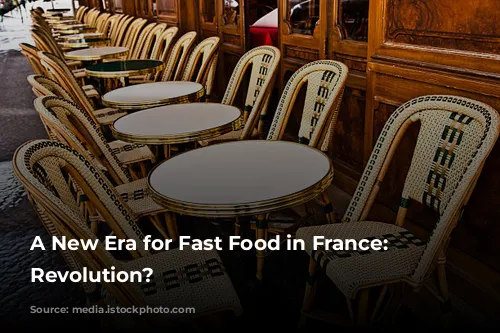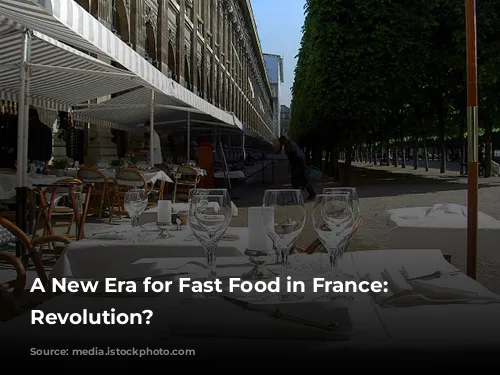Get ready for a major shift in the world of fast food in France! From 1 January 2023, a groundbreaking law comes into effect, banning disposable plates, cups, and cutlery for anyone dining in restaurants with over 20 seats. This “revolution,” as environmentalists call it, aims to significantly reduce waste and usher in a new era of sustainability.
This change will directly impact iconic chains like McDonald’s, Burger King, Starbucks, and Subway. For years, these fast-food giants have relied on an economic model built on disposable packaging. But the new law mandates that all restaurants, including fast-food joints, work canteens, and bakery chains, must switch to reusable, washable tableware for their dine-in customers.
Imagine a world where your fries come in a sturdy plastic container instead of a paper box! This shift is a complete departure from the familiar “grab-and-go” model and marks a significant turning point for the industry. With approximately 30,000 fast-food outlets serving 6 billion meals annually in France, the impact on waste reduction is projected to be substantial.
A New Era of Responsibility
Environmental groups like Zero Waste France, who spearheaded the initiative, are thrilled. They believe the law is a long-awaited step towards reducing the vast amounts of waste generated by the fast-food sector. While single-use plastic was already banned, it was often replaced by equally disposable items like cardboard, wood, and bamboo, which they consider a wasteful alternative.
However, the road to a sustainable future for fast food is not without its challenges. Critics worry that replacing single-use items with hard plastic may not be the ideal solution, questioning its durability and potential for becoming another source of waste. Concerns about the effectiveness of cleaning and potential customer reluctance to use shared cups are also raised.
These groups are calling for close monitoring of the law’s implementation. They want to ensure that restaurants comply with the new regulations and that appropriate alternatives are implemented. Strict enforcement and fines for non-compliance are seen as essential to ensure the law’s effectiveness.
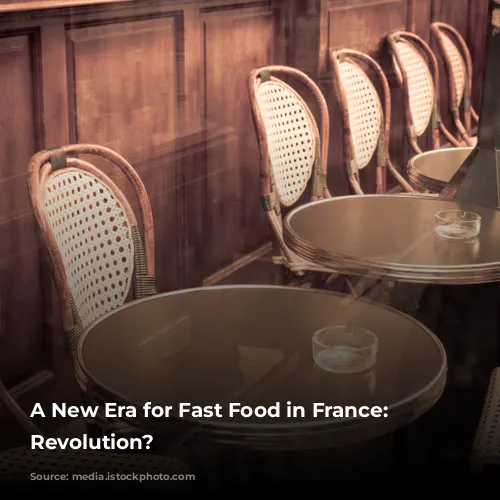
A Move Beyond the Plate
While this new law primarily addresses dine-in services, it has the potential to spark a broader shift towards sustainability in the fast-food industry. Environmental groups are hopeful that this will serve as a catalyst for change in takeout packaging as well. They envision a future where reusable packaging becomes the norm, with customers leaving deposits and returning containers for cleaning.
Think about it: maybe one day, you’ll be able to grab your burger in a reusable container, just like you do with your shopping bags!
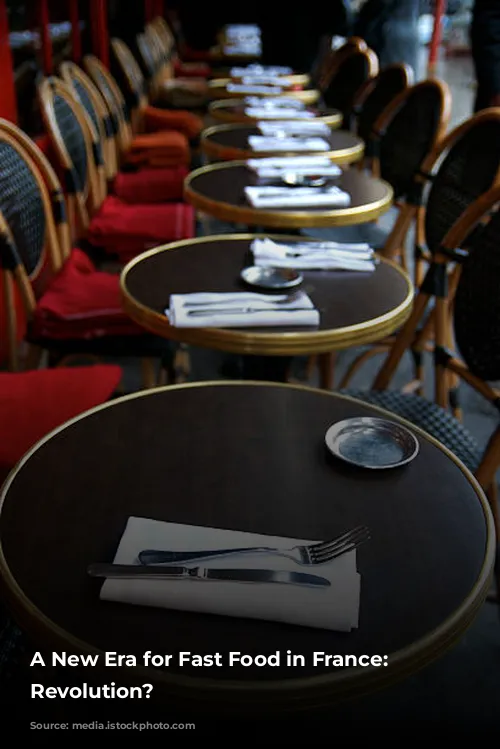
Adapting to the Change
Fast-food chains are already adapting to the new regulations, with some experimenting with reusable solutions. McDonald’s is now offering fries in reusable plastic containers resembling their iconic red boxes, while Burger King has trialed reusable bowls and cups with their signature logo.
One major hurdle for restaurants is finding space for dishwashing facilities and staffing to ensure proper cleaning and prevent misuse of reusable items. Some young customers have expressed reservations about the cleanliness of reusable cups, preferring takeaway options instead.
In response, environmental groups are rallying customers to play an active role in promoting sustainability. They encourage consumers to stay vigilant and to avoid patronizing restaurants that are not complying with the new regulations.
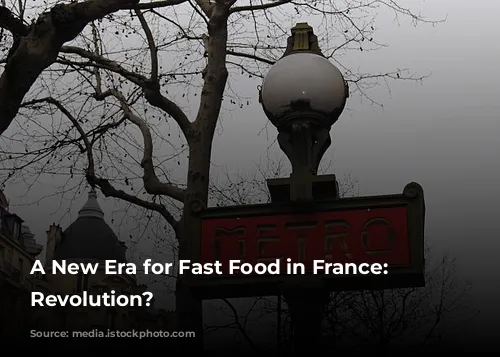
Conclusion
The ban on disposable tableware in French fast-food restaurants marks a significant step towards a more sustainable future for the industry. While challenges remain, this initiative has the potential to drastically reduce waste and inspire a paradigm shift in how we consume fast food. It’s a reminder that, with collective effort, we can make meaningful changes to protect our planet and ensure a cleaner, more sustainable future for generations to come.
